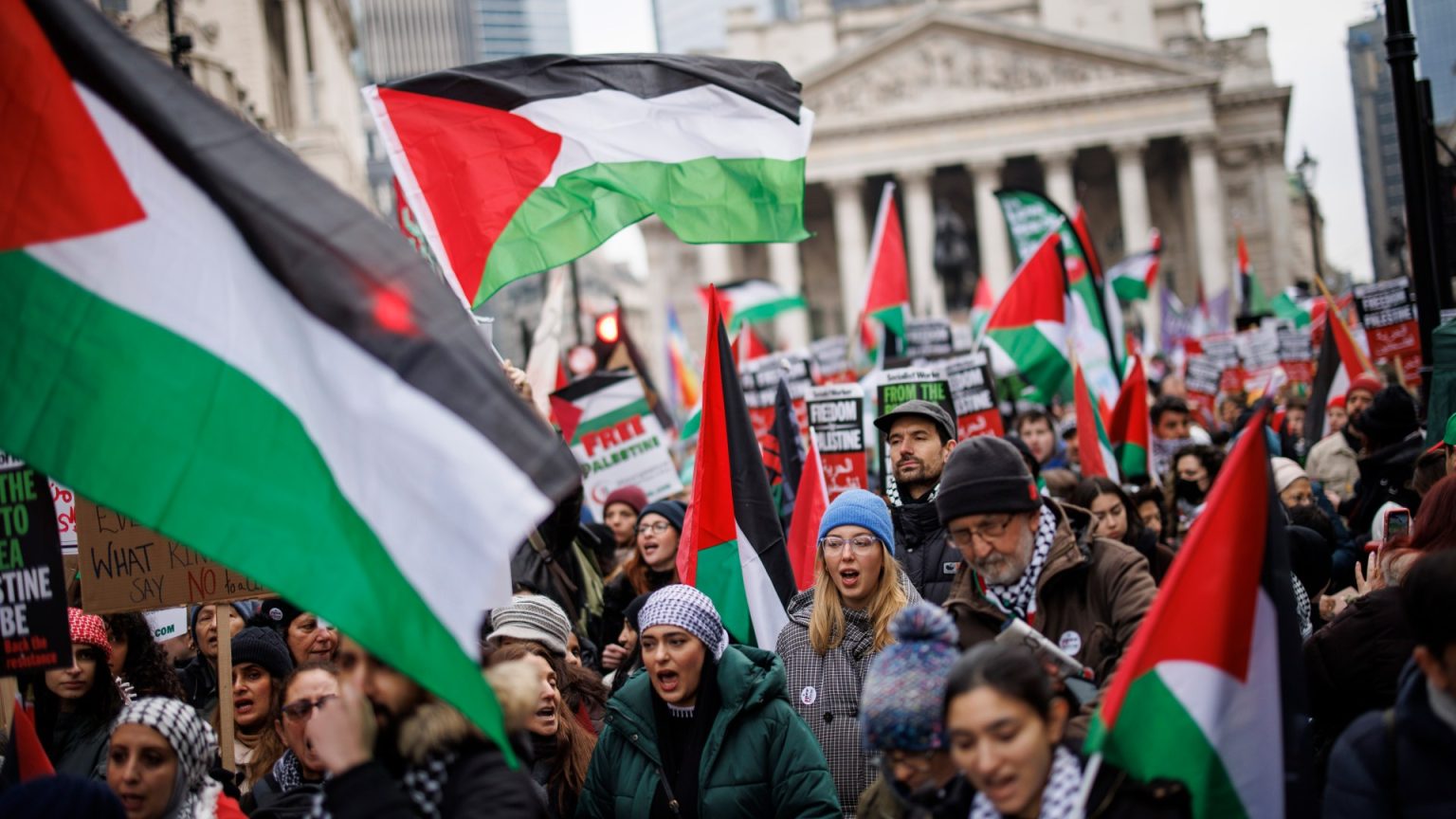The planned National March for Palestine, scheduled to commence outside BBC headquarters in central London, has ignited a firestorm of controversy due to its proximity to the Central Synagogue. Over 80 MPs and peers have penned a letter to Metropolitan Police Commissioner Sir Mark Rowley urging him to reroute the march, emphasizing the availability of alternative routes that avoid sensitive locations like synagogues. Their primary concern revolves around the potential for intimidation of the Jewish community, a sentiment echoed by both Labour and Tory politicians who cite past incidents of hostility and unease during similar demonstrations. The letter underscores the responsibility of the Met Police to ensure the right to protest does not infringe upon the safety and security of the Jewish community. This preemptive call for action underscores the growing tension and apprehension surrounding the planned march.
Adding weight to the concerns, Claudia Mendoza, Chief Executive of the Jewish Leadership Council, expressed gratitude for the cross-party support and reiterated the call for the Met Police to exercise its authority to reroute the march. She emphasized the delicate balance between upholding the right to protest and safeguarding the rights of the Jewish community, urging the police to prioritize the latter in this instance. The JLC’s intervention further intensifies the pressure on the Met Police to reconsider the march’s starting point and mitigate the potential for conflict and intimidation. This highlights the escalating anxieties within the Jewish community and the perceived inadequacy of the current security arrangements.
Britain’s Chief Rabbi, Ephraim Mirvis, has taken an even stronger stance, asserting that there is “no justification” for the Met’s failure to impose a complete ban on Gaza marches passing near synagogues. He characterized the Met’s reluctance as a dereliction of duty to protect Jewish communities who feel increasingly unsafe. This forceful condemnation from such a prominent religious leader elevates the issue to a matter of urgent concern, casting a harsh spotlight on the perceived inaction of law enforcement. Rabbi Mirvis’s statement adds significant moral and ethical weight to the debate, emphasizing the profound impact of these marches on the Jewish community’s sense of security and well-being.
Past Gaza marches have been marred by incidents of racially aggravated offences and arrests for supporting terrorism, further fueling anxieties surrounding the upcoming event. These past occurrences serve as a stark reminder of the potential for escalation and violence, underscoring the need for proactive measures to prevent a repeat of such incidents. The history of these marches, punctuated by arrests and reports of hate speech, creates a strong precedent for concern, suggesting that the planned march poses a credible threat to public order and the safety of the Jewish community.
The Metropolitan Police has responded by stating that it has requested the Palestine Solidarity Campaign (PSC), the organizers of the march, to alter the starting point. Should the PSC refuse, the Met has indicated its willingness to impose conditions on the march. This tentative response suggests a degree of awareness of the potential for conflict but falls short of the outright ban demanded by some. It remains to be seen what conditions the Met might impose and whether these will adequately address the concerns raised by the Jewish community and political leaders. The Met’s response, while acknowledging the potential for disruption, leaves room for uncertainty and apprehension, as the final decision regarding the march’s route and conditions remains unresolved.
The controversy surrounding the National March for Palestine underscores the complex interplay between freedom of speech and the right to peaceful assembly, juxtaposed against the need to protect vulnerable communities from intimidation and potential violence. The demand for a rerouting or a complete ban reflects the anxieties surrounding the march and its potential impact on community relations. The Met Police faces the difficult task of balancing these competing interests while upholding its duty to maintain public order and ensure the safety of all citizens. The outcome of this situation will have significant implications for future protests and demonstrations, setting a precedent for how law enforcement navigates the delicate balance between freedom of expression and the prevention of potential harm.




